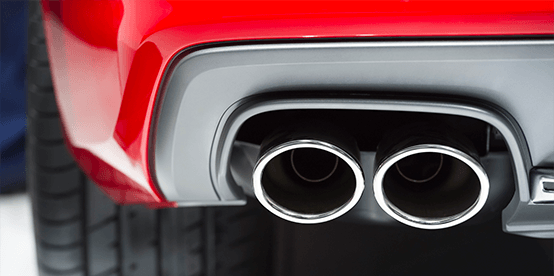Automotive Industry Pivoting in Times of Crisis


In the face of challenges, the automotive sector is finding ways to help the healthcare industry manage the COVID-19 situation, while looking at manufacturing as the next logical step moving forward:
Face Shields - Ford Australia produced up to 100,000 plastic face shields for frontline healthcare workers dealing with COVID-19.
Other measures include providing free vehicle servicing pick-up and drop off service and free access to Ford vehicles for medical workers with their 2nd car program.
Steel Trays for Hand Sanitisers- Specialist ute and truck body manufacturer Trojan Trays Australia pivoted from producing steel trays and fabrication services to building hand sanitiser stands in partnership with Flick Anticimex, national pest control and hygiene service company. The stands are distributed in the retail, corporate, hospitality and other industries.
Face Masks - Erebus Motorsport team developed face masks and perspex patient cover to minimize COVID-19 exposure in the hospitals.
Quality-testing Ventilators - A subsidiary of the German auto parts manufacturer and supplier, Bosch Australia, tested 4000 ventilators assembled domestically and sent to healthcare providers.
Their manufacturing solutions division is responsible for creating the test equipment to make sure that ventilators conform to quality control specifications.
Hospital Beds - A group of niche automotive manufacturers and suppliers teamed up to produce hospital beds in response to the pandemic: Amtek Australia (specialist in vehicle conversions, including ambulances), Fallshaw Wheels & Castors (specialist in wheels and movement enabling equipment) and Varley Group (equipment maker for fire engines and police vehicles).
The Emergency Relief Bed was created to accommodate patients in respiratory distress and provides critical surge capacity during the pandemic.
With the guidance of the Australian Government’s Advanced Manufacturing Growth Centre (AGMC), the hospital beds are exported to US medical giant Stryker.
Urgent Stimulus
In a press release by the Australian Automotive Dealer Association, the automotive peak bodies made a call to the government to provide a stimulus for the industry, due to declining car sales and the after-effects of the COVID-19 pandemic.
Car dealerships have started to lay off staff while some located in the region have been forced to close shop.
According to National Automotive Leasing and Salary Packaging Association Chairman Rob Bazzani, the motor vehicle industry represents a huge aspect of the economy and its crucial to get additional funds to ensure its continued operations during periods of vulnerability and weakened consumer confidence.
Stimulus options include rebates for the purchase of new cars, tax relief for new car buyers (GST, import tariffs, Luxury Car Tax) and investment incentives for businesses buying new cars.
Reviving the Car Industry
The Society of Automotive Engineers – Australasia (SAE-A) chairman and CEO Adrian Feeney said Australia’s car manufacturing sector could be revived, taking advantage of the skills and underutilised facilities to make advanced vehicles for export and producing specialist medical equipment during the crisis.
Mr Feeney is urging the government to pour more investments in reviving the car industry, He said the country can become the home of a ‘resurgent, world-class local car industry’, with its current roster of engineers, factories, and facilities.
Meanwhile, Australian Advanced Manufacturing Council executive director Mark Goodsell said the abundance of sunlight, wind and tidal activity in the country could be used to make energy products for local and international consumption, particularly electric cars and its components.
While major car manufacturing factories closed, car parts and systems production remained active. Australia already exports raw materials for car manufacturing, particularly lithium to make batteries.
In line with the government’s goal to build a modern, advanced competitive manufacturing sector, Mr Goodsell said it could grow its workforce by 20 % in the coming years. He noted that the industry can provide good, full-time jobs with good wages and good skill levels which is transportable to other fields.
Are you struggling to find the right candidate? Let us know. Register your vacancy and we'll help you hire the right person for your business.